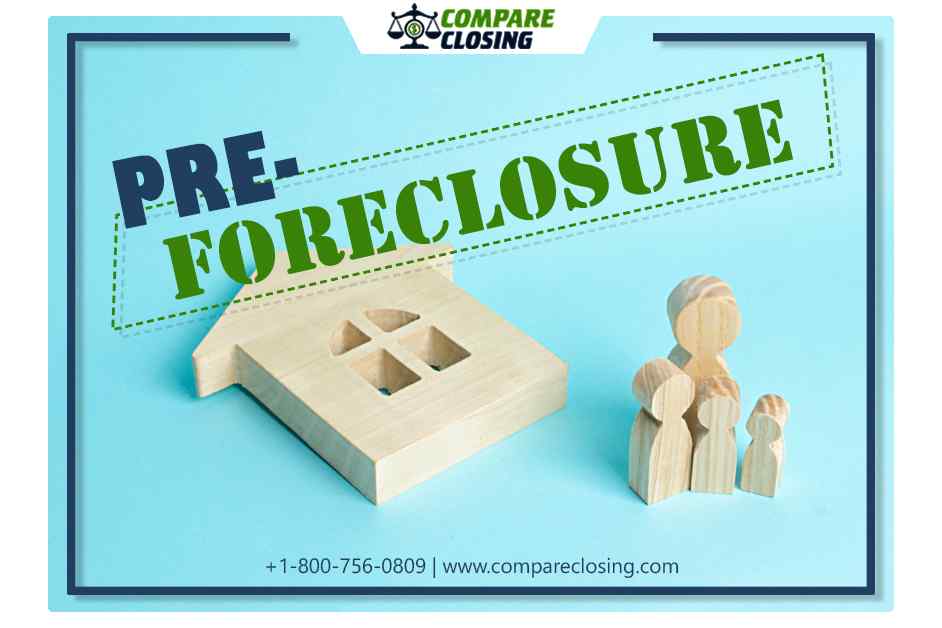Table of Contents
- What Are Netting Escrows & How Does It Work?: The Best Guide - January 2, 2024
- The Secret About Prescriptive Easement: Top Guide 1 Must Know - December 4, 2023
- About Home Equity Loans In Texas And How Can One Obtain It - November 27, 2023
What is Pre Foreclosure
The beginning phase of a legal proceeding that ultimately can lead to the repossession of the property from a defaulted borrower is called pre foreclosure.
In pre-foreclosure, because the borrowing owner has exceeded the contractual terms for delinquent payments a notice of default is filed by the lender on the property.
This notice informs the borrowing owner that the lender is going ahead with legal actions toward foreclosure.
Pre-foreclosure is an important phase for the borrower because even now the lender may be willing to negotiate on delinquent debt.
The pre-foreclosure is a final chance for the borrower to reverse the default status by either making up late payments, negotiating for a modification, or opting to sell the home before it reaches the final foreclosure eviction.
The working of pre-foreclosure
While taking out a loan to purchase a property the homebuyer signs a contract with the lending institution to repay the mortgage loan as per the contractual agreement with monthly installments.
A portion of principal and interest payments gets covered in the monthly payments of the mortgage.
If a borrower fails to make payments for three consecutive months then as per the standard mortgage contracts it is termed as default.
The lender at that point is contractually authorized to start with pre-foreclosure.
The borrower receives a copy of the notice of default, and by filing with the court it is made a matter of public record.
With this action the pre-foreclosure process begins, which takes from weeks to more than a year, depending on the state and is subject to a court proceeding.
To finalize on a foreclosure and eviction notice the lender is obligated to go through a court proceeding.
There are many standard steps of proceeding in the pre-foreclosure phase. The lender needs court approval, which is given by a judge, for their lien on a property.
Most of the time lenders are willing to negotiate backdated payments and possible loan modifications in the pre-foreclosure stage of a proceeding so they can avoid paying extensive foreclosure proceeding costs.
The lender can move toward a public auction or trustee sale if the foreclosure is granted and a foreclosure eviction notice is authorized.
Pros and cons of pre-foreclosure
Pros of pre-foreclosure:
During the pre-foreclosure phase, the home can be sold and that can be a win-win situation for everybody.
The homeowner is able to avoid the damage that a foreclosure would do to their credit history simply by selling.
For a buyer, it is beneficial because they can snag the property for below market value.
It is also advantageous for the lending institution who do not have go to pay the costs of a foreclosure proceeding or have to go through the process of selling the property themself.
Cons of pre-foreclosure:
Selling a property independently is quite a difficult task especially if there are legalities and disclosure requirements by which the seller must abide.
Buyers will need to be aware of any property liens or unpaid taxes on pre-foreclosed homes before buying them, as they could get transferred to the new owner without full disclosure or properly documented clauses.
If during the pre-foreclosure period the homeowner does not make old dues or current mortgage payments, negotiate a modification, or sell the home, then the lender will be granted authorization of their lien on the property and they can evict the owner, and continue taking action to sell the property at an auction.
At this point, the bank owns the property and may try to sell the property at an even lower price instead of maintaining its ongoing expenses, like the taxes and insurance.
A pre-foreclosure home sale being done by a borrower is also called a “short sale.”
Even if this sale is a private transaction between the homeowner and the buyer, the buyer’s offer needs to be approved by the bank before the finalization of the sale.
As the purchase price is less than the outstanding loan balance, this sale is called “short.”
It is not necessary that all short sales are pre-foreclosures. Many homeowners who are having a financial crunch sometimes decide to sell their properties in distress before reaching pre-foreclosure.
Before making an offer a buyer can have a pre-foreclosed home inspected. An investor who is looking to purchase the property can buy it for less than its fair market value and then sell it at a higher price for a profit.
To prepare a broker price opinion in all short sales, the lending bank needs to be involved and may hire one or more real estate brokers or attorneys of their own.
Conclusion
When the lender files a default notice on the property the pre-foreclosure begins it happens because the homeowner has surpassed the contractual terms for delinquent payments.
Mortgage borrowers may still have some options in pre-foreclosure, and they can make a backdated payments, negotiate for a modification, or arranging for a short sale.
Due to the COVID-19 pandemic, government-backed mortgages have a moratorium for forbearance, evictions, and foreclosure proceedings.
The federal moratorium has been stretched until March 31, 2021. States have their own foreclosure moratoriums.
Amanda Byford
Amanda Byford has bought and sold many houses in the past fifteen years and is actively managing an income property portfolio consisting of multi-family properties. During the buying and selling of these properties, she has gone through several different mortgage loan transactions. This experience and knowledge have helped her develop an avenue to guide consumers to their best available option by comparing lenders through the Compare Closing business.





